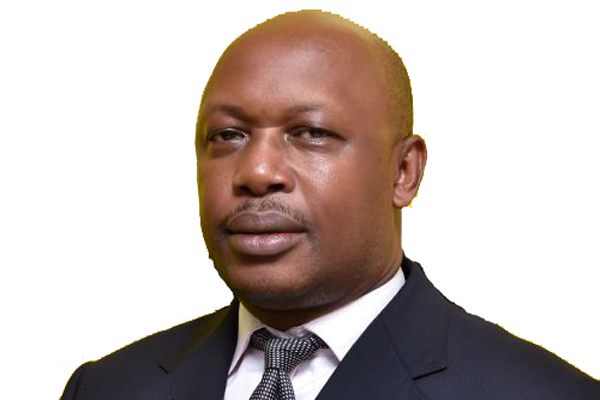Prime
Let’s embrace reforms to widen tax base

Author: Kiapi K Freddie. PHOTO/COURTESY
What you need to know:
- To improve domestic revenue mobilisation, there is need to minimise the use of non-standard VAT tax exemptions...
With the country’s GDP ratio being projected to grow between 6.5 percent in 2023 and 6.7 percent in 2024 as per the Budget Framework Paper, Uganda needs to adopt four basic economic interventions.
These include tax reforms to increase the tax base from the current estimated two million taxable economic ventures, fast tracking on its public administration spending (MDAs mergers), adaptation of the minimum wage formula and political reforms. These come with local government reforms to enable increased revenue generation at the district level.
At local government level, it is now or never to have all units think of having strategic productive plans that attract investment (local and foreign) than it is today where most are being in consumptive mode each financial year. Most of them do not even meet their revenue collection targets.
Uganda in the late 1980s and early 1990s embarked on reforming the tax system, liberalising the financial sector and foreign exchange, and dismantling state-owned marketing monopolies. This worked well, but with time, due to change in economic policies, the country’s tax base has stagnated at 13 percent for many years unlike other African countries such as Ghana and Senegal, which have theirs between 14 percent and 16 percent.
Furthermore, each year during the President’s State of the Nation Address, he has been so categorical in calling upon the Uganda Revenue Authority (URA) to become innovative in a way that can help the tax base reach the threshold of 14 percent to 16 percent.
According to President Museveni, “the URA tax GDP ratio of 13 percent is not serious, unlike the one in Europe that stands at 39.7 percent.” This, if achieved, can facilitate Uganda to meet its revenue targets as set out in the National Development Plan (NDP)III, which envisages that “there will be some improvement in domestic revenue mobilisation (excluding oil revenues). These gains will arise from minimising the use of non-standard VAT tax exemptions, which have compromised the effectiveness of tax collection. These exemptions are estimated to reduce government revenue by one percent of GDP.”
Thus NDPIII continues to highlight the need in streamlining VAT tax collection will be complemented by the current efforts of broadening the tax base, especially targeting the informal sector. There is also scope to increase corporate tax collection whose effective tax rates remains low compared to other East African countries.
In addition, the Plan state that the economic management and financial services sub-sector will work towards achieving the following targets: increase the rate of economic growth from 5.2 percent in 2022/2023 to an average rate 6.2 percent and increase tax to GDP ratio from 12.7 percent in 2024/2025 to 16 percent. This is still a daunting task for URA due to uncoordinated tax policies such as exemptions and many tax waives coupled with a small taxable base.
The Government of Uganda, since FY2013/2014, has been trying to increase the tax to GDP ratio to between 14 percent and 16 percent given strategic interventions such as developing and implementing a policy on mandatory association membership for informal sector players, rationalising the rental tax regime and integrate e-tax with utilities and other agencies, streamlining the non-standard VAT tax exemptions, developing mechanisms for exploiting capital gains tax, strengthening inter-agency collaboration among agencies concerned with investment promotion like the Uganda Investments Authority, Kampala Capital City Authority, Local Governments, URA and Uganda Registration Services Bureau to design and implement a mutually beneficial comprehensive investment regime, combating international tax evasion schemes in complex sectors to raise more tax, for instance corporate tax and strengthening capacity of relevant staff in critical functions of revenue management, audit, forensics investigations and legal affairs.
To achieve the above, there must be total commitment by the Executive as the Legislature in its wisdom has passed many tax policies, which among other things, call for reforms too.
The writer, Kiapi K Freddie, is a concerned citizen
[email protected]




